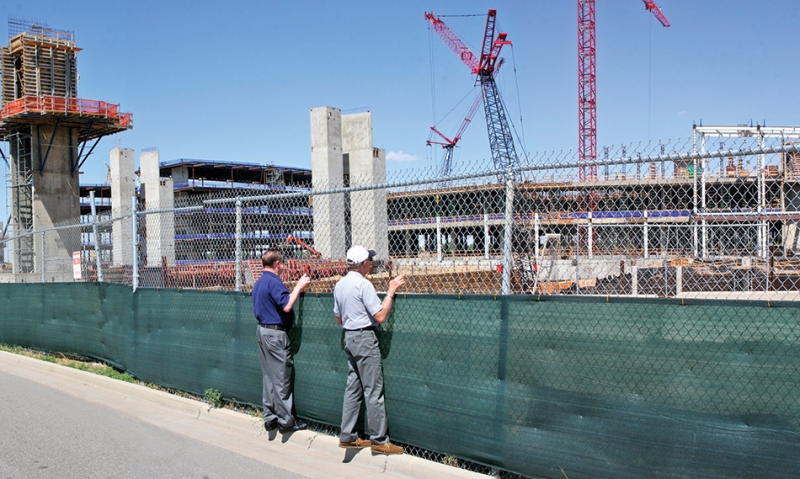
Colorado veterans are still waiting for VA to complete a medical center it broke ground for in 2009.
The American Legion told members of Congress at an April 22 field hearing in Denver that the Department of Veterans Affairs (VA) "needs to take a long, hard look at how they're managing their construction projects because the results across the board are unacceptable."
Ralph Bozella, chairman of The American Legion's Veterans Affairs & Rehabilitation Commission, testified at the hearing before the House Veterans' Affairs Subcommittee on Oversight and Investigations. The hearing centered upon prohibitive delays and cost overruns in constructing the city's new VA medical center, being built on the site of the former Fitzsimons Army Medical Center.
In 2009, VA Secretary Eric Shinseki announced the Denver facility would be set to open in the summer of 2013. Yet, the project has been hobbled by mismanagement that has delayed the project by many months and incurred hundreds of millions of dollars in cost overruns. Last October, VA's Office of Inspector General criticized the department for the lack of guidance, documentation and central tracking, and inaccurate project milestones.
Bozella chairs the Legion's System Worth Saving (SWS) Task Force that evaluates health-care quality at more than a dozen VA facilities each year. Based on his own SWS site visits, he told the subcommittee, "I've been able to see VA has some problems with accountability and transparency, largely communications issues, that are hurting veterans' ability to access their health care."
Construction debacles at VA facilities in Denver, Las Vegas, New Orleans and Orlando, Fla., have come to be known as the "Big Four." They account for average delays of 35 months and average cost overruns of $366 million. Bozella said construction in Denver "continues to stagnate," and VA needs to complete the project "so veterans will no longer be required to use inadequate and substandard facilities ... mismanagement is killing these projects and nobody seems to be held accountable."
Noting that "VA health care is a great health-care system for veterans when they can access it," Bozella said, "veterans can't get that state-of-the-art health care if they can't get into a facility." For example, he said the VA medical center in Las Vegas (which finally opened in August 2012 at $600 million over budget) needed another $16 million to modify its emergency room because the space was too small, and it lacked a drop-off ramp for ambulances.
"Just to be clear," The American Legion stated in its written testimony, "the VA built a major hospital without a drop-off ramp for ambulances at the emergency room." A serious look needs to be taken, the Legion said, "at how VA conducts their management of construction projects," and that "the current state of affairs cannot be allowed to continue."
Bozella said that "behind schedule" has a serious ripple effect among veterans enrolled in the VA system. "Behind schedule means veterans have to drive farther, wait longer, (and) delay critical care until their facility can open." It means "pushing veterans out into the private sector where it's harder for their primary-care providers to track the effects of specialty care because the private sector lacks VA's VISTA system to share health records."
Throughout the construction process, the Legion said, "Veterans' groups, the key stakeholders in the community, have been held at arm's length and essentially shut out of comprehensive communication with VA. In the eyes of the veterans' community and the public, nobody in VA has been held accountable for the massive failures in the management of these construction projects."
- Legislative

